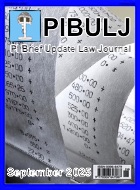'Mixed claims' and the application of QOCS - Afriyie v Commissioner of Police for the Metropolis [2023] EWHC 1974 (KB) - Amy Lanham Coles, Temple Garden Chambers

24/08/23. This claim arose out of an incident in which the Claimant had been tasered by the police and had fallen and hit his head. The Claimant had brought a claim for assault, battery and misfeasance in public office. He pursued damages falling into five categories: (i) basic damages for assault and battery; (ii) general damages for personal injuries; (iii) special damages including property damage and medical expenses; (iv) aggravated damages; and (v) exemplary damages. The claim had failed at trial and this case arose out of a consequential dispute as to costs; namely the application of the Qualified One-Way Costs Shifting (“QOCS”) regime, which affords costs protection to claimants who pursue personal injury claims.
Issues
It was common ground that this was a “mixed claim” for the purposes of QOCS (para 3). The Defendant argued that as this was a mixed claim, permission should be granted under CPR r 44.16(2)(b) to enforce a costs order against the Claimant (25% of the Defendant’s costs with an interim payment on account).
Held
The Defendant failed to persuade the judge to disapply QOCS. Citing Brown v Commission of the Police of the Metropolis [2019] EWCA Civ 1724 (“Brown”), Hill J considered whether the claim should fairly be described “in the round” as a personal injury case (para 17). This was to be determined by focusing on what was claimed by way of damages, rather than focusing on the Claimant’s causes of action (paras 19-20). Personal injury claims encompassed general damages for pain, suffering and loss of amenity (PSLA), as well as special damages arising out of personal injury, such as claims for medication or treatment (in line with Brown at paras 54-55, cited at para 11). Considering the five categories of damages pursued by the Claimant, the judge concluded that only PSLA and the claims for special damages relating to medical appointments and treatment constituted claims for personal injuries (paras 21-22). She concluded that the claims for basic damages for assault and battery and those special damages related to property damage were not claims for personal injuries, but on these facts, these sums were modest (paras 22-23). Finally, she held that the “substantial” claims for aggravated and exemplary damages were also not claims for personal injuries, but determined that these were parasitic on the aspects of the claim related to personal injuries (paras 24-26). Taking these factors into account and considering that it was the alleged assault by tasering that gave rise to the Claimant’s personal injuries, the judge found that the claim was, in the round, one for personal injuries (paras 28-29).
Hill J noted that even if a claim was considered in the round as a personal injury claim, in line with Brown, there may be exceptional features of the non-personal injury claims which might justify the disapplication of QOCS (para 30). She considered eight features of the case highlighted by the Defendant and whether these should preclude the application of QOCS (para 34). These included, inter alia, the serious and unproven allegations made against the Defendant, the fact that the Claimant had been dishonest, the possibility of collusion between the Claimant’s witnesses, his alleged use of media pressure and the fact he had caused or at least contributed to the incident itself (para 33). The judge declined to find that any of these factors were exceptional; they were largely part of the usual incidences of litigation and they applied equally to both the personal and non-personal injury claims (paras 35-41). Accordingly, permission to enforce those costs under CPR r 44.16(2)(b) was refused (para 42).
The judgment is an example of a methodical approach to the exercise of discretion under CPR r 44.16(2)(b).
Image ©iStockphoto.com/tirc83












![Appeal judge rules that credit hire company has no costs liability following a finding of fundamental dishonesty in personal injury case: RSA v. Fastrack Solutions Limited [2023] 4 WLUK 92 - David Bowden, Erimus Chambers](/content/images/resized/images/stories/carkeys_72_72.jpg)


